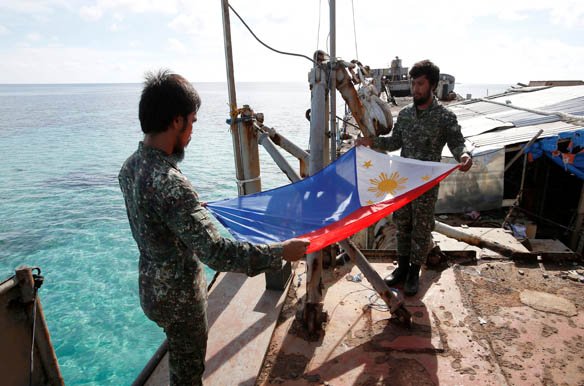by: Roy Cabonegro
In a significant geopolitical move, the Philippines has filed a formal claim with the United Nations to extend its continental shelf in the South China Sea. This claim aims to secure additional seabed territory beyond the 200 nautical mile Exclusive Economic Zone (EEZ) as defined by the United Nations Convention on the Law of the Sea (UNCLOS). The filing, submitted to the UN’s Commission on the Limits of the Continental Shelf (CLCS), seeks recognition of the Philippines’ rights over the extended continental shelf in the West Philippine Sea, an area the country considers part of its sovereign territory.
President Ferdinand Marcos Jr. has underscored the importance of this claim for the Philippines’ energy security, highlighting the need to explore new potential resources as the Malampaya gas field, a critical energy source for the country, approaches depletion. This move is part of a broader strategy to ensure energy independence and transition towards renewable energy sources.
This development comes against a backdrop of ongoing tensions between the Philippines and China over the South China Sea. The Philippine Department of Foreign Affairs (DFA) has repeatedly asserted the country’s sovereign rights over features within its EEZ and continental shelf, including the contested Ayungin Shoal. Despite China’s expansive claims and aggressive actions in the region, the Philippines has maintained that its rights are supported by international law, specifically citing the 2016 arbitral ruling that invalidated China’s broad claims.

The Philippines’ application to the UN is a strategic effort to solidify its maritime entitlements through established international legal frameworks. The CLCS will review the submission to determine if it meets the criteria set out in UNCLOS.
The timing of this filing is also influenced by broader geopolitical dynamics. Recently, the Group of Seven (G7) nations issued a statement expressing concern over the situation in the East and South China Seas, emphasizing the need to uphold a rules-based international order and ensure freedom of navigation and overflight. President Marcos Jr. has called for heightened vigilance and preparedness for potential external threats, reflecting the growing regional security concerns.
China’s actions in the South China Sea continue to escalate tensions. Reports indicate that China is seeking to detain foreigners in the disputed waters, a move that has been widely condemned as an escalation of its assertive tactics. This behavior has drawn international criticism, with countries like Australia and Canada expressing support for the Philippines and urging China to refrain from provocative actions.
The Philippines’ decision to seek UN approval for its extended continental shelf is a bold assertion of its maritime rights and a crucial step towards securing its energy future. This action is part of a broader strategy to navigate the complex and often contentious maritime disputes in the South China Sea. The outcome of the UN’s review will have significant implications for regional stability and the geopolitical balance in one of the world’s most strategically important waterways.
Photo credit: Erik de Castro | Reuters










